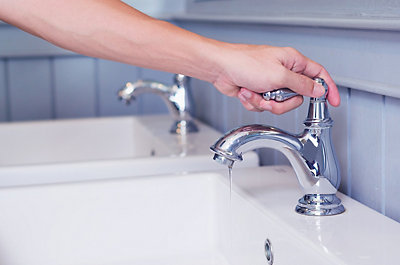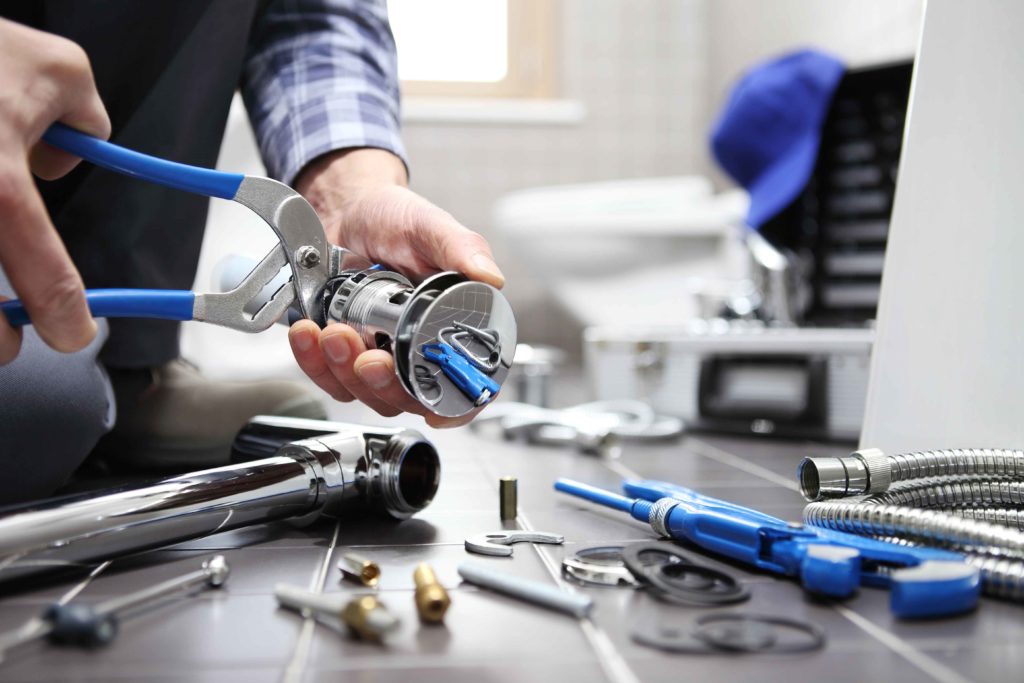An Explanations Behind Correcting a Malfunctioning Faucet
An Explanations Behind Correcting a Malfunctioning Faucet
Blog Article
This post down the page pertaining to Water Dripping from Faucet: Why and How to Fix is rather intriguing. You should look it over.

Dripping faucets might seem like a small aggravation, yet their influence exceeds just the inconvenience of the sound. From drainage to incurring unnecessary economic expenses and health and wellness risks, ignoring a dripping tap can lead to various repercussions. In this short article, we'll explore why it's vital to resolve this typical family concern immediately and successfully.
Wastefulness of Water
Ecological Impact
Trickling taps add substantially to water waste. According to the Environmental Protection Agency (EPA), a solitary tap leaking at one drip per second can waste greater than 3,000 gallons of water annually. This not only strains water sources however also influences environments and wildlife depending on them.
Financial Expenses
Increased Water Expenses
Beyond the ecological impact, trickling faucets can pump up water expenses substantially. The collected wastage gradually translates into greater utility expenses, which can have been stayed clear of with prompt fixings.
Potential Home Damage
Moreover, extended leaking can lead to damage to fixtures and surfaces surrounding the tap. Water build-up can cause discoloration, corrosion, and also structural problems if left neglected, leading to added repair work prices.
Health and wellness Concerns
Mold and Mold Development
The constant existence of dampness from a dripping tap develops a perfect atmosphere for mold and mildew development. These fungis not just endanger indoor air quality but likewise present health and wellness threats, specifically for people with respiratory conditions or allergies.
Waterborne Diseases
Stagnant water in dripping taps can come to be a breeding place for microorganisms and various other microorganisms, enhancing the risk of waterborne illness. Impurities such as Legionella germs grow in stagnant water, possibly resulting in significant diseases when consumed or breathed in.
Do it yourself vs. Professional Repair service
Advantages and disadvantages of Do It Yourself Fixing
While some might attempt to repair a leaking tap themselves, do it yourself repairs include their very own collection of obstacles. Without correct knowledge and tools, DIY attempts can intensify the concern or lead to incomplete repairs, prolonging the problem.
Benefits of Hiring a Professional Plumber
Hiring a professional plumber ensures that the underlying cause of the trickling tap is attended to effectively. Plumbers possess the knowledge and tools to diagnose and repair faucet problems effectively, conserving time and lessening the danger of more damages.
Step-by-Step Overview to Taking Care Of a Dripping Faucet
Devices Needed
Prior to attempting to take care of a leaking faucet, collect the required tools, consisting of an adjustable wrench, screwdrivers, substitute components (such as washers or cartridges), and plumber's tape.
Typical Faucet Issues and Their Solutions
Determine the type of tap and the specific problem creating the drip. Typical troubles include damaged washers, rusty shutoff seats, or defective O-rings. Describe supplier instructions or on the internet tutorials for detailed guidance on repair services.
Safety nets
Normal Maintenance Tips
To prevent trickling taps, perform routine maintenance such as cleaning aerators, checking for leakages, and replacing worn-out parts immediately. Furthermore, think about setting up water-saving devices or upgrading to more efficient components.
Value of Prompt Fixes
Attending to dripping faucets as quickly as they're seen stops additional water wastage and possible damages, eventually saving both water and cash over time.
Impact on Property Worth
Understanding of Well-Maintained Property
Maintaining a residential or commercial property in good condition, consisting of dealing with upkeep issues like leaking taps, improves its regarded value and charm amongst potential purchasers or lessees.
Influence on Resale Value
Residences with properly maintained plumbing fixtures, including faucets, command greater resale worths in the real estate market. Dealing with leaking taps can add to a positive impact throughout building inspections and negotiations.
Environmental Responsibility
Specific Contribution to Preservation
Taking obligation for dealing with trickling faucets aligns with broader efforts towards water preservation and ecological sustainability. Every individual's actions collectively make a substantial influence on protecting valuable resources.
Lasting Living Practices
By focusing on punctual repair services and embracing water-saving habits, people contribute to sustainable living methods that benefit both existing and future generations.
Final thought
Addressing a trickling faucet surpasses simple ease; it's a crucial step toward preserving water, decreasing economic costs, and securing health and residential property. Whether through DIY fixings or professional support, doing something about it to fix leaking taps is a tiny yet impactful way to advertise liable stewardship of resources and contribute to a healthier, a lot more lasting future.
How to Fix a Leaky Faucet: Step-by-Step Repair Guide
A leaky faucet may seem like a simple annoyance, but if it's not fixed promptly, that leak could cost hundreds to potentially thousands. From water damage to mold, mildew, and high water bills, even a tiny leak can be catastrophic if left unattended. Damage like this can even affect the overall value of your home, so it's important to take the right approach for leaky faucet repair. You may need the help of a plumber in some cases, but we've got a few tips you can try on how to fix a leaky faucet before calling the pros.
Four Faucet Types
When you're learning how to fix a leaky faucet, the first step is knowing what kind of faucet you're working with! There are four common types.
Cartridge Faucets
Cartridge faucets come in one- or two-handled varieties. In one-handled cartridge faucets, hot and cold water combines in a single cartridge. In the two-handled versions, hot and cold water are controlled separately and mixed in the faucet.
Ball Faucets
Ball faucets have a single lever you push up and down to adjust the pressure and rotate to change the temperature. A slotted metal ball controls the amount of water allowed into the spout.
Compression Washer Faucets
They're the oldest type of faucet, but they're still used in many homes — especially older ones. Compression faucets have two separate handles that, when turned, raise or lower the washer that seals a water valve. This valve stops water from flowing through the faucet when it is turned off.
Disc Faucets
Disc faucets rarely need to be repaired due to their maintenance-free design. The water flow is controlled by two discs — the upper one raises and lowers against a fixed lower disc, creating a watertight seal. If your disc faucet starts leaking, you may need to replace the seals or clean residue buildup from the inlets.
Fixing a Leaky Faucet
Step 1: Turn Off the Water
Whether you're learning how to fix a leaky bathtub faucet or how to fix a leaky kitchen faucet, always turn off the water supply to your working area when you're fixing a leak. The last thing you want is a flood added to your list of things to fix.
Look for the shutoff valves below your sink or around the tub and turn them clockwise to stop the water flow. If your faucet doesn't have shutoff valves, you may need to turn off the water for the whole house. Check to make sure it's off by turning the faucet on. If nothing comes out, you're ready to start the repair.
Step 2: Take Apart the Faucet
How you disassemble your faucet depends on the type of fixture you have. You can use a flathead screwdriver to remove the caps on top of the handle or handles for cartridge and compression faucets. Inside, you should see handle screws. Unscrew these with a screwdriver to remove the handle.
Disc- and ball-style faucets will typically have an inlet screw near the handle, and removing that will reveal the interior of the faucet.
Detach the Valve Stem
For cartridge- and compression-style faucets, you'll see the inner valve stem or cartridge once you remove the faucet handles. If you have a compression faucet, unscrew the brass valve stem. If you have a cartridge faucet, pull out the cartridge. If your cartridge has been in place for a while, it may require some tools or extra force to remove it due to mineral deposits.
Examine and Replace Parts
Once you've removed the parts, check them out to confirm what needs to be replaced. You may see corroded rubber washers, O-rings, stems, or cartridges. On a ball-style faucet, check the seats and springs for damage.
If you need to repair a leaky disc faucet, check the inlet and seals on the lower disc.
Once you determine what parts must be replaced, visit your local hardware store. Bring the damaged parts with you to ensure you can purchase the correct components to replace them.
Clean Valves and Faucet Cavity
If you've removed a stem or cartridge, you may notice mineral buildup in the faucet's threads. Use white vinegar to clean the valve seat by soaking it for a few minutes, then scrub it away with a soft toothbrush and rinse with warm water. You can also clean the interior of the faucet in the same way.
Reassemble the Faucet
Once your faucet is cleaned and the required parts have been replaced, it's time to reassemble it. Put the pieces back together and slowly turn the water supply back on. Doing this slowly is crucial because too much initial water pressure can damage the new hardware you've just installed.
https://homewarranty.firstam.com/blog/how-to-fix-leaky-faucet

I am just very interested by Why Is It Important To Fix Your Leaking Tap/Faucet? and I am hoping you liked the new post. If you liked our blog posting kindly remember to share it. Thanks a lot for taking the time to read it.
Report this page